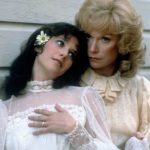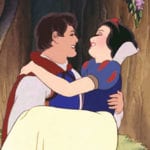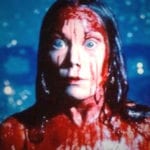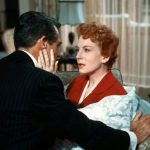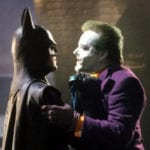 Politics
Politics  Politics
Politics  Miscellaneous
Miscellaneous 10 Things You May Not Know about the Fourth of July
 History
History 10 Shocking and Gruesome Founding Father Facts They Don’t Teach in School
 Crime
Crime The Ten Most Vicious Los Angeles Killers
 Miscellaneous
Miscellaneous 10 Indispensable Corporations the World Cannot Afford to Lose
 Animals
Animals 10 Unusual Wolves That Made The News
 Mysteries
Mysteries 10 Bizarre, Little-Known Phenomena
 Music
Music 10 Musicians Who Changed How Everyone Plays Their Instruments
 Humans
Humans 10 Inventors Who Died Awful Deaths in Their Own Creations
 Animals
Animals 10 Ways Animals Use Deception to Survive
 Politics
Politics 10 Lesser-Known “First and Only” Facts about U.S. Presidents
 Miscellaneous
Miscellaneous 10 Things You May Not Know about the Fourth of July
 History
History 10 Shocking and Gruesome Founding Father Facts They Don’t Teach in School
Who's Behind Listverse?

Jamie Frater
Head Editor
Jamie founded Listverse due to an insatiable desire to share fascinating, obscure, and bizarre facts. He has been a guest speaker on numerous national radio and television stations and is a five time published author.
More About Us Crime
Crime The Ten Most Vicious Los Angeles Killers
 Miscellaneous
Miscellaneous 10 Indispensable Corporations the World Cannot Afford to Lose
 Animals
Animals 10 Unusual Wolves That Made The News
 Mysteries
Mysteries 10 Bizarre, Little-Known Phenomena
 Music
Music 10 Musicians Who Changed How Everyone Plays Their Instruments
 Humans
Humans 10 Inventors Who Died Awful Deaths in Their Own Creations
 Animals
Animals 10 Ways Animals Use Deception to Survive
Ten of Hollywood’s Greatest Movies About Dads
In a memorable scene from the 1991 Western comedy City Slickers, actor Daniel Stern delivered the memorable line: “When I was about 18, and my dad and I couldn’t communicate about anything at all, we could still talk about baseball. Now that was real.” Unfortunately, we never got to actually see Stern’s character Phil and his dad bond over the great American pastime. However, many of the greatest movies ever made are based on stories developed around a father and his unique relationship with his children.
Whether they make us laugh or cry, there is much to remember and relate to in movies that depict children and how each one bonds with the paternal figure in their life. Here are ten of the greatest movies ever made that depict relationships with kids and “dear old dad.”
Related: Top 10 Interesting Stages In The Development Of Father’s Day
10 Cheaper by the Dozen
Typecast throughout his career as a “fastidious, finicky, fussy, abrasive, and condescending persona,” Clifton Webb was tailor-made for roles such as Mr. Belvedere in Sitting Pretty and its sequels after a breakout performance at the age of 55 as the villain Waldo Lydecker in Otto Preminger’s classic film noir Laura. Webb, a “confirmed bachelor” and closeted gay actor in 1940s Hollywood, was an unusual choice to star in the 1950 family comedy Cheaper by the Dozen as the husband of Myrna Loy and the patriarch of a full household of twelve children.
Despite being cast against type, as he arguably was in Laura, his stage-trained sophisticated aura worked remarkably well in his performance as an old-fashioned, benevolent despot who ruled the roost, in a role Tony Randall would have played effortlessly had he been cast in it three decades later. The film has more recently inspired a 2003 remake and 2005 sequel starring Steve Martin and an updated 2022 release starring Gabrielle Union depicting a modern blended family.
However, for Webb, it remains one of his most remembered roles despite the fact he was not a married family man in real life and lived with his beloved mother, Mabel, until she passed away at the age of 91. Upon hearing of Webb’s loss, playwright Noel Coward reportedly opined, “It must be terrible to be orphaned at 71.”[1]
9 Bambi
Bambi is not only considered one of the greatest animated features ever made but was rumored to be the favorite of Walt Disney himself out of all of his many classic films. Generally, the film is remembered for its cute portrayal of young woodland creatures in the first half of the movie, such as the rabbit Thumper and his skunk friend Flower. Also, who can forget young Bambi’s first encounter with skating on a frozen pond? But more memorable is the tragic depiction of Bambi’s mother’s death by the omnipresent villain in the story: man.
But what many fail to remember is that in the second half of the film, Bambi matures and grows into the heir and future guardian of his fellow forest inhabitants due to the tutelage and parenting of his dad—not his mother. From the jarring moment when his father appears and counsels Bambi that “your mother can’t be with you anymore” to the dramatic scene in which he wills his son to escape the forest fire, the dad is a pivotal figure in the story and in the young deer’s life. Ultimately, the story of father and son comes full circle as Bambi welcomes his own twin fawns into the world in the film’s denouement as the dad steps aside for the new “Great Prince of the Forest.”[2]
8 Frequency
Have you ever dreamed of picking up a phone today and calling your dad, say thirty years ago, when he was still alive, and catching up on lost time? As appealing and preposterous as that sounds, that’s exactly what Dennis Quaid and Jim Caviezel almost do in the 2000 science fiction thriller Frequency. Thanks to an appearance of the aurora borealis over New York City in 1969 during the Amazin’ Mets World Series run and the same phenomenon occurring precisely thirty years later, modern-day cop John Sullivan and his dad, fireman Frank Sullivan, re-connect over not a phone but an old ham radio. Throw in a little string theory science to explain it all, and you have a father and son communicating in real-time over a thirty-year gap.
As a result, the son is able to warn the father of the tragic fire that killed him over three decades earlier. This sets off an unforeseen “butterfly effect” that inadvertently saves the life of a serial killer, who continues to wreak havoc across the Big Apple in the autumn of ’69. But what really makes this film work isn’t just the innovative storyline or the pseudoscientific premise. It’s the central storyline of a son who is able to communicate with a lost father who he never dreamed he would ever hear from again. The ham radio dialogue scene, after John saves Frank’s life, is one of the most poignant in film history and one of cinema’s greatest “guy cry” moments.[3]
7 The Pursuit of Happyness
In the 1980s, businessman and motivational speaker Chris Gardner was living on the streets, homeless, and trying to raise a toddler son. His story of overcoming extreme economic obstacles to become a successful stockbroker and founder of his own brokerage firm is not only inspirational, but it’s also the stuff of legends. Likewise, it was a great personal story that was adapted into one of the most emotionally compelling movies about a father and son that Hollywood has ever produced.
The casting of father and son Will and Jaden Smith was inspired, and their real-life chemistry translated well on the silver screen. When Gardner initially expressed misgivings about Smith being cast to play him in the film, his daughter Jacintha replied, “If he can play Muhammad Ali, he can play you!”Apparently, she was right.
Smith would be nominated for the Academy Award for Best Actor after playing both parts. Sadly, when he finally scored his first Oscar for playing another father, the dad of Venus and Serena Williams in King Richard, the moment was marred by his infamous slap of comedian Chris Rock. On a positive note, the emotional intensity of Smith, which apparently is also evident in his real life, played well in his performance as a man driven to succeed both professionally and as a father in circumstances that would destroy most.[4]
6 Finding Nemo
Who says a story about being a single parent who loses a spouse and then almost loses their child has to be serious? And who says an animated film about fish frolicking in the Great Barrier Reef off the coast of Australia can’t be suspenseful, sentimental, and at times hilarious? Not many would if they’ve had the pleasure of seeing Pixar’s colorful and highly entertaining family film Finding Nemo.
Released just eight years after the same studio’s groundbreaking computer-animated film Toy Story, Finding Nemo is not just a film of beautiful tropical colors and technical brilliance. It’s also a sweet story about an overprotective dad trying to raise his son while also reeling from personal loss. Likewise, the son’s rebellious streak from being micromanaged by an overzealous parent created complications that drove a storyline that captivated audiences of all ages. People flocked to theaters to see it. Grossing over $871 million worldwide, Finding Nemo finished second at the box office in 2003.
With memorable voice-over performances from a diverse cast, including Albert Brooks as Nemo’s clownfish father, Ellen DeGeneres as a ditzy royal blue tang, William Dafoe as a disfigured Moorish idol fish, and Alexander Gould as the titular lost son, the movie managed to create three-dimensional personalities in an array of aquatic characters. Film critics have also noted that Finding Nemo introduced one more novelty rare in animated films: the dad is the hero of the story, not the mother.[5]
5 Red River
Often the western movie, which actor/director Clint Eastwood once claimed is “one of the few art forms Americans can lay claim to,” has been used not to just portray the Old West as it once was but also used as an analogy for contemporary issues that modern viewers continue to grapple with. Classic westerns such as The Ox-Bow Incident and The Searchers unabashedly tackled topics ranging from racism to lynching to mob violence and even genocide. In the American era between World War II and the passage of the 1964 Civil Rights Act, these were both topical and controversial issues for a more conservative Hollywood to address.
In keeping with this theme, Howard Hawks’ 1948 masterpiece Red River was not merely an overblown epic of the first cattle drive on the old Chisholm Trail. It’s also the story of a father and his adoptive son, played by the western genre’s greatest star John Wayne and method actor Montgomery Clift. The generational conflict between the two men almost anticipates the youth culture and social upheaval less than two decades away in the 1960s.
Critic Roger Ebert has written that the theme of the film is from classical tragedy and portrays “the need of the son to slay the father… in order to clear the way for his own ascendency” while the father desires “to gain immortality through the child.” Regardless of one’s interpretation, it remains one of the greatest westerns of Classic Hollywood not directed by John Ford, who, after seeing Wayne’s performance, admitted that until he saw Red River, he “never knew the big son of a bitch could act.”[6]
4 Kramer vs. Kramer
For every parent who has ever been through a divorce or even worse, a protracted custody battle with an ex-spouse, there are few events more painful or emotionally draining to experience in life. Perhaps no film has captured the cycle of a parent being abandoned in a marriage and forced to assume the role of mother and dad while trying to maintain a career and support the child as effectively as Robert Benton’s 1979 Award-winning film Kramer vs. Kramer.
Watching the evolution of the dad, changing from a workaholic advertising executive who can’t even remember what grade his boy is in when forced to take him to school for the first time to the devoted father who takes a lesser job in order to prioritize the son in his life is a powerful progression that perhaps led many viewers to see issues of child custody in a much different light.
Dustin Hoffman would win the Best Actor Oscar for his performance as the single dad, and young Justin Henry was a mere seven years old when playing his son Billy in a role that would earn him an Oscar nomination for Best Supporting Actor, despite having no previous acting experience. There was an authenticity in the rapport between Hoffman and Henry that resonated with audiences, particularly dads and sons who’ve bonded in the aftermath of a contentious divorce.[7]
3 East of Eden
In a tale as old as Cain and Abel and in a modern story inspired by the biblical narrative, John Steinbeck’s novel and Elia Kazan’s film adaptation of East of Eden explore both the basic theme of good versus evil and, to some degree, how parental favoritism can spawn resentment and destroy relationships. Cast to play the complex role of Cal, the less favored and troubled twin son of deeply religious father Adam Trask, was the virtually unknown and future screen legend James Dean.
In a breakout performance of youthful angst that Dean would later essay to perfection in Nicholas Ray’s Rebel without a Cause, he not only captured the psychological conflict that drove the character, but he also believably portrayed the tension between Cal and his onscreen father, played by stage and screen veteran Raymond Massey.
In fact, the method-trained actor Dean would frequently provoke Massey off-camera to heighten the personality conflict between them, which is felt in the scenes the two shared. Reportedly, Massey grew to despise working with the young actor due to what he perceived as a “lack of professionalism.” Tragically, Dean would appear in only two more films before his untimely death from an automobile accident on September 30, 1955, only five months after the film’s premiere.[8]
2 The Godfather
With great lines such as “I’m gonna make him an offer he can’t refuse,” one of the most memorable film scores ever composed by Nino Rota, and career-defining performances by an all-star cast ranging from Marlon Brando and Robert Duvall to Al Pacino and James Caan, The Godfather is not just one of the greatest gangster movies ever made, it’s simply one of the greatest films—period! But it’s much more than a classic crime drama; it’s the story of an Italian-American family caught between the organized criminal enterprise they’ve created and their attempts to go “legitimate,” in the words of youngest son and future Don, Michael Corleone.
In fact, it is the desire of Michael to break away from the family “business” that drives the first part of the classic film. However, an assassination attempt on his father, Vito, leads the idealistic youngest son to put family loyalty over his own ambitions, securing his future path to becoming a ruthless mafia boss. For all of the memorable violence in the film—from a Hollywood producer waking up with a severed horse’s head in his bed to the oldest brother Sonny being gunned down at a highway tollbooth in a barrage of machine-gun bullets—it’s the intimate family scenes that arguably remain the most powerful.
Who can forget Michael reassuring his father in the hospital and protecting him from a rival mob hit or the elderly Don crying when seeing the body of his dead oldest son, or dying himself of a heart attack while playing with his grandson in a garden. As Vito Corleone himself said, “A man who doesn’t spend time with his family can never be a real man.” Yes, The Godfather is a great gangster classic, but it is also a powerful family drama centered on the relationship of a father with his three sons.[9]
1 To Kill a Mockingbird
How many young, idealistic attorneys have been motivated to pursue a legal profession after reading Harper Lee’s acclaimed novel of racial injustice in the segregated South? Probably many more than moms who were inspired to name their sons “Atticus” after the heroic father, who would later be iconically portrayed by Gregory Peck in an Oscar-winning motion picture performance. Although, at their core, both the novel and the later film adaptation are built around themes of racial inequality and the destruction of innocence, the storylines are also told from the perspective of a child, young Jean Louis Finch, better known as “Scout.”
The relationship that both she and her older brother Jem share with their widowed father is the central narrative that has made the film so relatable to audiences, particularly those who grew up in the South during the Great Depression. As poignant and tragic as the story is in its depiction of Tom Robinson, a black man fighting for his life after being falsely accused of assaulting a white woman, the interpretation of the events through Scout’s innocent eyes lent moral clarity that enhanced the dramatic power of the film and book.
The final scene was shot through a window of Scout being held by her father with the haunting Elmer Bernstein score and the narration that Atticus “would be in Jem’s room all night, and he would be there when Jem waked up in the morning” as his son recovers from being attacked. Not surprisingly, it ranks among the most indelible moments in cinematic history.[10]

